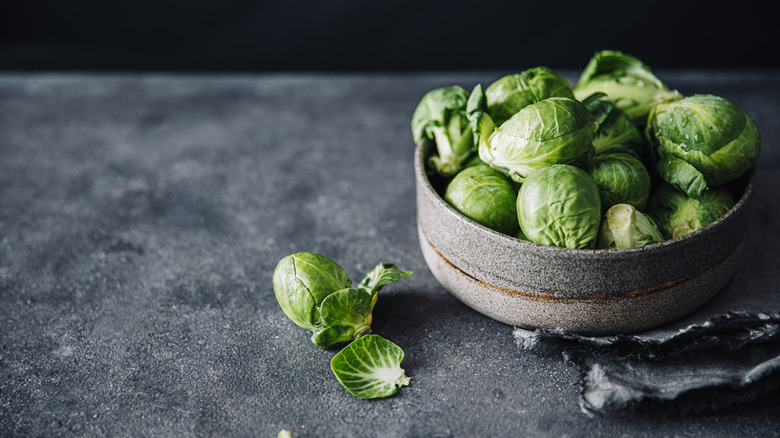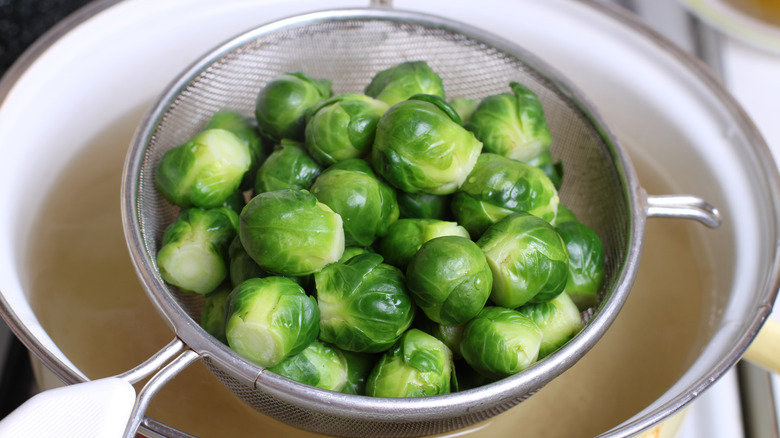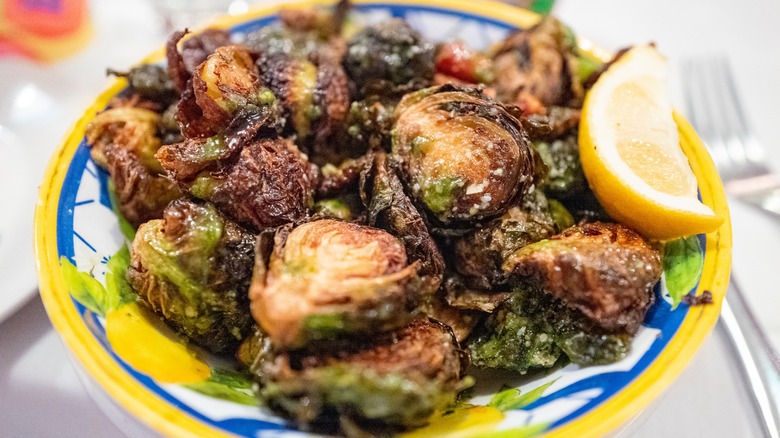How To Fix The Bitter Taste In Brussels Sprouts
When it comes to vegetables at your local supermarket, Brussels sprouts are a particularly great resource. They're hardy, hearty, won't wilt in your fridge, and are relatively affordable compared to veg like spinach or asparagus. But not everyone is on board the train to Brussels, largely because of their bitterness. Brussels sprouts are part of the Brassica oleracea family, known for its crunchy, often bitter offspring like cabbage, kale, broccoli, and collard greens.
But there are many ways to offset the bitterness of your Brussels sprouts without boiling them into mushy blobs. Start by selecting smaller Brussels sprouts, which will be less bitter than large mature sprouts. Remove the outer layer of leaves, which will tend to be more bitter. These buying and prep tips are a good start to making your Brussels sprouts taste just right, followed by preparing them correctly and balancing out their bitterness with other ingredients.
Blanch your Brussels
One technique for mitigating bitterness in Brussels sprouts is to blanch them. (This technique also works for making collard greens less bitter, as well as other greens.) Blanching involves adding your veg to boiling water for a brief period, then plunging it into an ice bath to stop the cooking process. Many recipes will suggest blanching your veg for several minutes, but keep in mind longer blanching times can make your vegetables mushy. Leafy greens should be blanched for no more than 30 seconds, and Brussels sprouts should only go in the hot water for a minute or two. Cut them in halves or quarters before blanching so that the interiors and exteriors of the sprouts cook evenly.
Once blanched and dried, you can roast or sauté your Brussels sprouts in oil, or even pop them in an air fryer. The result will be sprouts that are nice and crispy on the outside while tender and cooked through on the inside.
It's all in the seasoning
Bitter isn't always bad. It's one player in a symphony of flavors that make up a balanced dish. So when making Brussels sprouts, think about what other elements you can add as a counterbalance. There's a reason why maple syrup has become such a popular ingredient in Brussels sprouts dishes. The sweetness works with the bitterness, and the sugar helps to caramelize the sprouts and bring out their own sweetness. A bit of brown sugar will also work.
Acid can be useful as well. A splash of lemon juice, or even apple cider vinegar, works wonders on bitter sprouts. Another key ingredient is fat, which helps Brussels sprouts to crisp up. This is why it's so popular to render bacon fat and cook Brussels sprouts in it, then add the bacon bits back in at the end. For a vegetarian option, stick with something with a high smoke point, like avocado oil. You'll be left with sprouts that are sure to please even the pickiest of eaters.



